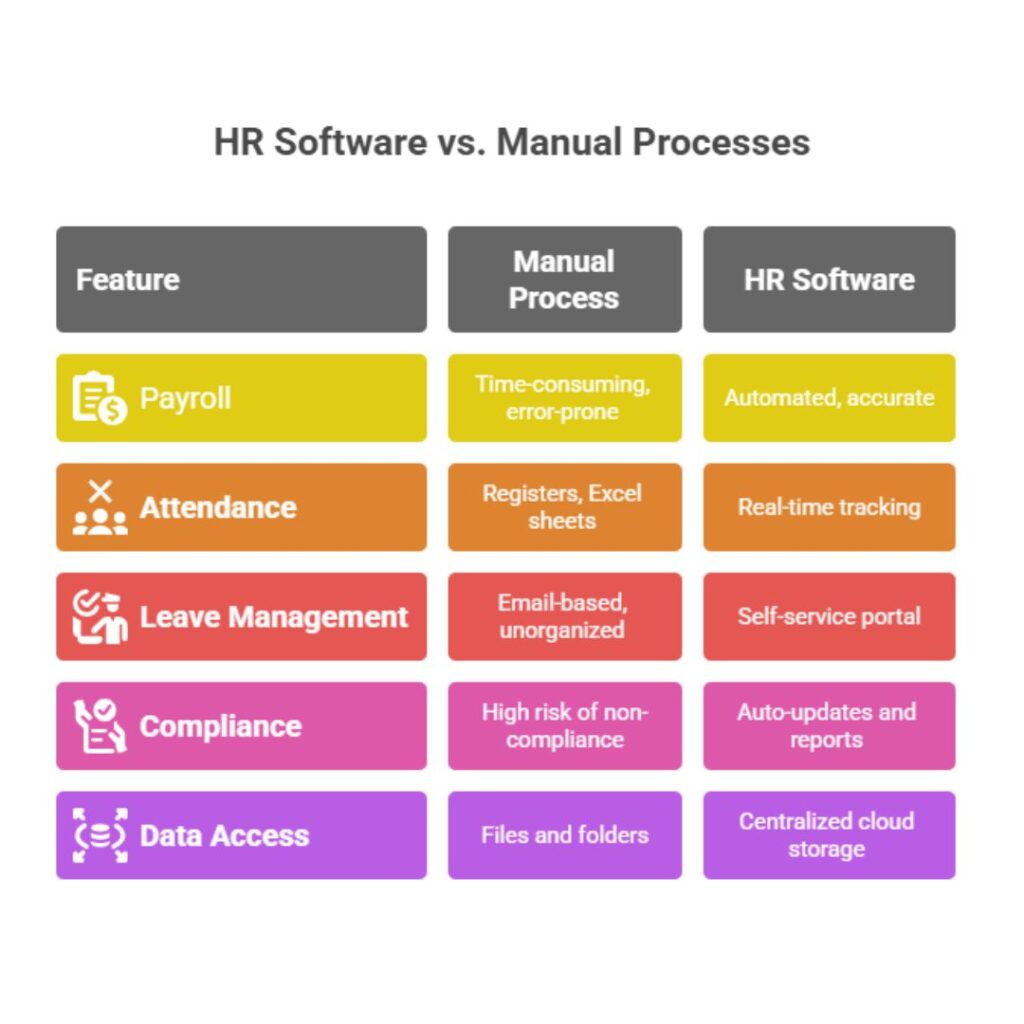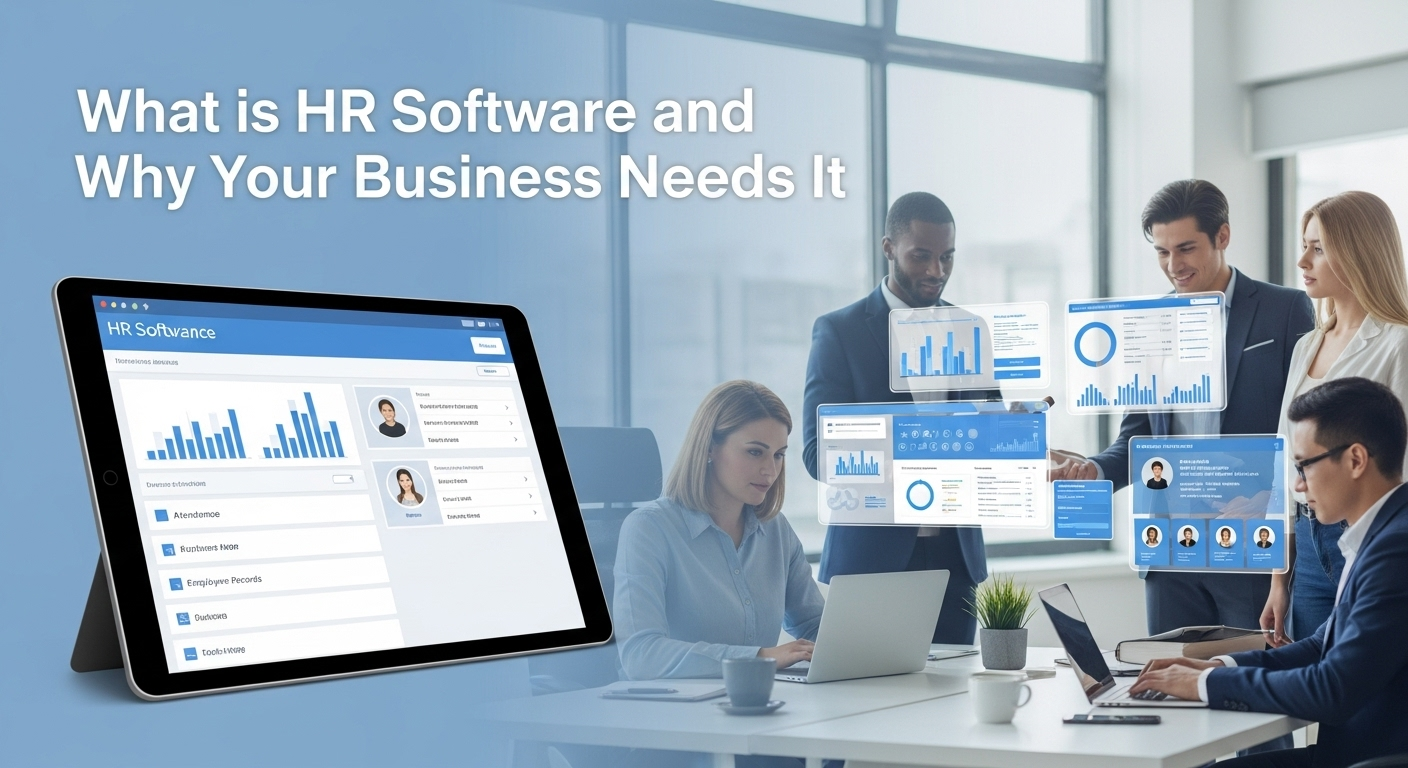In today’s fast-paced business world, managing a workforce efficiently is more critical than ever. Human Resource (HR) software has emerged as an essential tool for streamlining HR operations, from payroll and attendance tracking to recruitment and performance evaluation. Whether you’re a startup or a growing enterprise, HR software can significantly improve the way your team operates.
If you’re running a business in a metro city, choosing the right Payroll Software Bangalore businesses rely on can be the first step toward a fully automated HR system. These tools not only simplify payroll processing but also ensure compliance with local labor laws and reduce manual errors.
Let’s explore what HR software is, what features it offers, and why your business needs to adopt it.
What is HR Software?
HR software is a digital solution designed to automate and streamline various human resource functions within an organization. It serves as a centralized system where HR professionals can manage employee data, recruitment, onboarding, leave, attendance, payroll, compliance, performance appraisals, and more.
Depending on the size and needs of a business, HR software can range from basic tools to comprehensive platforms with multiple modules. Modern HR software often comes as a cloud-based solution, allowing access from anywhere, real-time data updates, and seamless integration with other business systems.
Key Features of HR Software
Here are some core features commonly found in robust HR software:
1. Employee Database Management
A central repository for storing employee information such as contact details, job titles, joining dates, qualifications, and documents.
2. Payroll Processing
Automates salary calculation, tax deductions, bonuses, reimbursements, and generates payslips with compliance to labor regulations.
3. Attendance and Leave Tracking
Tracks employee attendance, shift timings, and leave balances through biometric devices or online check-ins. This is especially effective when combined with a cloud-based attendance system.
4. Recruitment and Onboarding
Simplifies hiring by integrating job postings, applicant tracking, interview scheduling, and onboarding workflows.
5. Performance Management
Helps managers set goals, track employee progress, conduct appraisals, and provide feedback.
6. Compliance Management
Ensures the organization is aligned with employment laws and industry standards by automating statutory reporting and documentation.
Why Your Business Needs HR Software
Now that we understand what HR software does, here are the key reasons why your business should invest in it:
1. Increased Efficiency
Manual HR processes are time-consuming and prone to errors. HR software automates repetitive tasks, saving your HR team valuable hours every month.
2. Error-Free Payroll
Payroll is one of the most sensitive functions in HR. With automated calculations and tax updates, HR software ensures employees are paid accurately and on time—helping avoid disputes and penalties.
3. Improved Compliance
Labor laws, tax regulations, and reporting requirements can be complex. HR software keeps you compliant by updating statutory laws and generating necessary forms like PF, ESI, TDS, and more.
4. Better Decision Making
With real-time analytics and dashboards, HR managers can make informed decisions based on employee performance, hiring trends, turnover rates, and more.
5. Employee Self-Service
Modern HR platforms provide self-service portals where employees can apply for leave, download payslips, update their profiles, and more—reducing the workload on HR staff.
6. Remote Accessibility
Cloud-based HR software allows your team to access data and perform HR tasks from anywhere. This is especially useful in a post-pandemic work environment where remote and hybrid models are common.
How to Choose the Right HR Software
With so many options available, choosing the right HR solution depends on your business needs, team size, and growth plans. While exploring your options, consider platforms recommended by the Top Hr Companies In India, as they often highlight tools that are reliable, scalable, and packed with features.
Here are a few tips for selecting the best HR software:
- Evaluate Your Needs: Do you need only payroll and attendance, or a complete HR suite?
- Check for Integration: Make sure the software can integrate with your existing systems like accounting or ERP.
- Look for Scalability: Choose a platform that grows with your team and adapts to your business changes.
- Read Reviews and Case Studies: Learn from other companies in your industry.
- Test User Experience: Go for software that is easy to use and requires minimal training.

Benefits for Different Business Sizes
Small Businesses:
- Affordable cloud solutions available
- Easier hiring and onboarding process
- Reduces the need for a large HR team
Medium Enterprises:
- Consolidates multiple HR functions
- Improves compliance and reduces admin overhead
- Supports performance evaluation and growth planning
Large Organizations:
- Offers advanced analytics and reporting
- Manages complex shift schedules and large payrolls
- Integrates with enterprise-grade tools like ERP and CRM
Conclusion
HR software is no longer a luxury; it’s a necessity for businesses aiming to remain competitive, agile, and compliant. From simplifying payroll to managing performance, it empowers your HR department to focus on strategic activities instead of administrative burdens.
Whether you’re a startup or a large enterprise, investing in a modern HR solution can significantly boost productivity and employee satisfaction. For businesses in metro areas like Bangalore, where the job market is dynamic and compliance is critical, finding the right Payroll Software Bangalore companies trust is a wise step toward operational excellence.
And if you’re unsure where to start, explore platforms recognized by the Top HR Companies In India to ensure you’re choosing a solution backed by proven expertise and client success stories.


